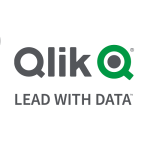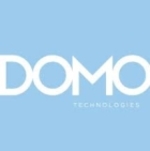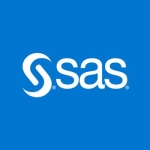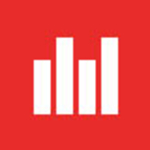
Group Finance Head Of Investment Bank Product Control at a financial services firm with 10,001+ employees
Gain clarity in financial presentations and face challenges with data preparation
Pros and Cons
- "Tableau is extremely good at dashboard creation, providing clear and concise visual presentations."
- "I find data prepping in Tableau challenging to understand, perhaps because I am new to it. It sometimes requires extensive investigation to determine why the data does not appear correctly."
What is our primary use case?
We mainly use Tableau for financial presentations.
What is most valuable?
Tableau is extremely good at dashboard creation, providing clear and concise visual presentations. The most beneficial feature is its ability to present data cleanly and effectively. However, setting it up and using it with large datasets can be challenging. Tableau excels in visualization, making presentations efficient.
What needs improvement?
I find data prepping in Tableau challenging to understand, perhaps because I am new to it. It sometimes requires extensive investigation to determine why the data does not appear correctly. Currently, I rely on community support to answer my queries, and it is still early for me to provide further comments on improvement.
For how long have I used the solution?
I have been using Tableau for less than a year.
Buyer's Guide
Tableau
April 2025
Learn what your peers think about Tableau. Get advice and tips from experienced pros sharing their opinions. Updated: April 2025.
850,671 professionals have used our research since 2012.
What was my experience with deployment of the solution?
There were challenges in getting accustomed to the functionality of Tableau, especially since I am used to Microsoft products. Certain criteria needed a lot of experimentation, particularly in data prepping. Sometimes the data doesn't appear as expected, leading to extensive investigative work.
What do I think about the stability of the solution?
I have not faced any issues with the stability of Tableau.
What do I think about the scalability of the solution?
I am still working towards understanding the scalability of Tableau. Currently, I have not encountered any limitations, but I am still exploring and replacing current tools. It is too early to comment on scalability issues.
Which solution did I use previously and why did I switch?
We previously used Microsoft Power BI. Power BI seems more powerful for data massaging and processing compared to Tableau. However, Tableau is superior in terms of visualization.
How was the initial setup?
The initial setup was a bit challenging, particularly because I was used to Microsoft products. It took some time to get certain criteria right, but it has become easier over time.
What about the implementation team?
The setup was conducted through my IT team, who provided me with the license.
What was our ROI?
We have not derived any significant benefits yet as we are still in the exploration stage, except for one time-saving achievement.
What other advice do I have?
If you have many presentations, I recommend Tableau. However, if your focus is on heavy data processing or data prepping, Tableau may not be the best choice. I would rate Tableau a 7 out of 10.
Which deployment model are you using for this solution?
On-premises
Disclosure: I am a real user, and this review is based on my own experience and opinions.
Last updated: Apr 14, 2025
Flag as inappropriateAssistant Vice President - Business Managment Specialist at Deutsche Bank
Useful for data summarizing and dashboarding
Pros and Cons
- "Tableau's most valuable features are its ability to summarize data, provide dynamic controls for navigating different charts, and showcase historical data trends. I appreciate the option to colour-code different charts for improved customer experience."
- "Tableau could be improved by introducing a data manipulation layer within the tool itself. Currently, data manipulations require using additional tools like Alteryx. If Tableau included these capabilities, it would reduce the need for external dependencies. The tool gets slower when we feed huge amounts of data."
What is our primary use case?
We use the tool's dashboard for reporting purposes.
What is most valuable?
Tableau's most valuable features are its ability to summarize data, provide dynamic controls for navigating different charts, and showcase historical data trends. I appreciate the option to colour-code different charts for improved customer experience.
Tableau has influenced our decision-making process. With its ability to create conditional views and filter data easily, we can quickly analyze information and make informed decisions. It saves us time by providing a concise business performance summary, allowing us to focus rather than sorting through extensive Excel files.
What needs improvement?
Tableau could be improved by introducing a data manipulation layer within the tool itself. Currently, data manipulations require using additional tools like Alteryx. If Tableau included these capabilities, it would reduce the need for external dependencies. The tool gets slower when we feed huge amounts of data.
For how long have I used the solution?
I have been working with the product for four months.
What do I think about the stability of the solution?
I rate the solution's stability a nine out of ten since it gets slower whenever huge data is added.
What do I think about the scalability of the solution?
The tool's scalability is easy. I rate it a ten out of ten. My company has thousands of users for Tableau.
How are customer service and support?
We've got a dedicated support. It's easy to reach out to them, and they respond promptly.
How would you rate customer service and support?
Positive
How was the initial setup?
I rate the tool's deployment a six out of ten. It depends on the individual's technical background. Someone with a technical background could learn it in about a week or ten days. However, for someone from a non-technical background, it might take them longer, maybe a month, to grasp the more complex aspects of the tool.
What was our ROI?
Tableau has provided a return on investment for our company. It has helped us manage critical information such as outstanding payments and trade details. With Tableau, we have gained visibility into outstanding rates and payment dues, enabling us to follow up on penalties or payments from clients.
What's my experience with pricing, setup cost, and licensing?
The solution's licensing is based on user-basis. It depends on the business ROI it offers. It's not on the higher side or too cheap; it falls in the medium-cost range. The price is determined by user usage, so the cost will also increase as the number of users increases.
What other advice do I have?
For data analysis, we primarily use Tableau for basic tasks like creating pie charts or calculating averages. However, it lacks extensive or complex data analysis capabilities.
Tableau's data planning capabilities are somewhat limited. To compensate, we rely on other tools like Alteryx for data manipulation. Once we've prepared the data, we create hyperfiles and use Tableau for dashboarding.
I would recommend Tableau for advanced visualization tools. Still, I must mention that other powerful options are available in the market, such as Power BI. Power BI, which offers extensive data manipulation and dashboarding capabilities, while Tableau is old. Additionally, Power BI has newer versions, enhanced capabilities, and better integrations.
Right now, there are no talks on replacing it. So, my company will continue to rely on Tableau because it has many users. If we have to move to another tool, there must be a migration plan and many logistical changes, which could be a challenge.
I rate the overall product an eight out of ten. I advise those considering using Tableau to analyze their needs beforehand. Tableau can be a valuable data analysis and visualization tool, but it's important to understand what you want to achieve with it.
Disclosure: I am a real user, and this review is based on my own experience and opinions.
Buyer's Guide
Tableau
April 2025
Learn what your peers think about Tableau. Get advice and tips from experienced pros sharing their opinions. Updated: April 2025.
850,671 professionals have used our research since 2012.
Practice Head BI at Nous Infosystems
Building hyper extracts and creating visuals have been streamlined
Pros and Cons
- "The most valuable features of Tableau include building hyper extracts and creating visuals."
- "Tableau's data blending feature could use some improvement. Previously, I used other tools, such as Alteryx, for data blending because Tableau had limitations."
What is our primary use case?
I use Tableau for analytics development for different clients. It doesn't serve a specific use case for me as each customer has their own analytics development. I develop and provide analytics for various clients.
What is most valuable?
The most valuable features of Tableau include building hyper extracts and creating visuals. These functionalities are very useful, especially the ability to create visuals without much pre-work, which is a great advantage. Building hyper extracts and visualization capabilities make Tableau a robust tool for data analysis.
What needs improvement?
Tableau's data blending feature could use some improvement. Previously, I used other tools, such as Alteryx, for data blending because Tableau had limitations. Although the hyper extract and data modeling capabilities have slightly improved this feature, there is still room for enhancement.
For how long have I used the solution?
I have been using Tableau for around six to seven years.
What do I think about the stability of the solution?
Tableau is pretty stable, and I have not found any problems in terms of performance.
What do I think about the scalability of the solution?
The solution is fully scalable and performs well even with large datasets, provided there is proper supporting hardware.
How are customer service and support?
Technical support has been very responsive. Even if there are any issues with Tableau Server, writing a ticket results in a prompt response.
How would you rate customer service and support?
Neutral
How was the initial setup?
Tableau installation is easy, both for server and desktop versions. One person is enough to manage the installation.
What's my experience with pricing, setup cost, and licensing?
Pricing for Tableau is slightly higher, which is why I generally suggest Power BI as a much cheaper alternative.
Which other solutions did I evaluate?
I have worked with QuickSight, Tableau, and Power BI.
What other advice do I have?
I rate my overall experience with Tableau an eight out of ten. In terms of suggestions, I feel that Tableau needs to improve its AI capabilities. In comparison, Power BI offers features like Copilot and AI-enabled visuals, which Tableau currently lacks. Enhancing AI features would be beneficial. I rate the overall solution an eight out of ten.
Which deployment model are you using for this solution?
On-premises
Disclosure: I am a real user, and this review is based on my own experience and opinions.
Last updated: Apr 18, 2025
Flag as inappropriateDirector , Business Intelligence at a healthcare company with 5,001-10,000 employees
Really good performance and has a growing community
Pros and Cons
- "Tableau's performance is really good, and it is adding new features."
- "Tableau's integration with Einstein Analytics could be better."
What is our primary use case?
We use the solution for operational reporting, dashboards, metrics, and ad-hoc analysis.
What is most valuable?
The best thing about Tableau is that you don't need a database connection and can generate a dashboard from a spreadsheet. It's very open. It moved the responsibility to the end user rather than in a closed control loop. There are a lot of widgets. Tableau looks for the data and suggests cool widgets. The community is growing, and there is always someone who has tried something before.
If you go to Tableau Cloud, you will see tons of visualizations and things that have already been done. You don't need to struggle a lot. If you post a question, someone will always answer you. The product is also getting better. Tableau's performance is really good, and it is adding new features.
What needs improvement?
When Salesforce bought the solution, they claimed that Einstein would be part of Tableau, but that indication is not working. Tableau's integration with Einstein Analytics could be better. It's not even up to par with other products. The ad hoc, self-service, and data analysis features are not working.
For how long have I used the solution?
I have been using Tableau for 11 years.
What do I think about the stability of the solution?
We haven’t faced any issues with the solution’s stability.
What do I think about the scalability of the solution?
Tableau's scalability is much better than the other previous clunky tools like MicroStrategy and Cognos. Around 300 to 350 users use the solution in our organization.
How was the initial setup?
The solution's initial setup is straightforward, and its details are available on the internet. The solution's cloud service can be deployed within a day. However, the on-prem deployment depends on many other factors and might take a couple of days.
What was our ROI?
We have seen a return on investment with Tableau.
What's my experience with pricing, setup cost, and licensing?
Tableau is an expensive solution.
What other advice do I have?
The solution is deployed on the cloud in our organization. If Tableau is on-premises, you have to monitor the server, recycle it, and restart it. However, if it is in the cloud, the admin role is completely reduced. We don't have a Tableau admin. The solution solves my problem, it is working as expected, and I have no complaints from my end.
There will always be complexities. We have to create a good data model so Tableau can use it. It's up to the team to make it complex or easy. Very good.
Overall, I rate the solution a nine out of ten.
Disclosure: I am a real user, and this review is based on my own experience and opinions.
Last updated: Aug 27, 2024
Flag as inappropriateSenior Capacity Planner at a financial services firm with 10,001+ employees
A stable and mature product that provides good data visualizations and is useful for analyzing different sets of data
Pros and Cons
- "The data visualization piece is most valuable. We do ad-hoc analysis or one-time shot things, but there are things that we have to track every single day. When our management and our customers want to see how things are changing, the dashboarding provides that information. Tableau is key in providing that data on a refresh basis. We use a data blending tool that pumps the data into Tableau, and we just schedule it to run every single day. So, the automation of the data and being able to present it to people who are interested are the most valuable features."
- "Its price is a concern. It is more expensive than Power BI. The other thing that I never liked about Tableau is its ability to handle large sets of data. To present the data in the dashboards, we have to stage it up exactly like it is going to come into the dashboard. We use another tool called Alteryx that does that for us. So, we manipulate the data, get it staged, and then push it into Tableau. Tableau is terrible at handling large data sets, and we knew right away that we couldn't use Tableau to do data manipulation."
What is our primary use case?
We do tons of data analysis for the organization to try to plan for resources that are needed in the infrastructure, specifically servers, storage, and that kind of stuff.
There are about 30,000 devices that we have to manage. We need to make sure that we have what we need for our internal customers, which is a really tough task unless you can analyze data every single day. We look for all sorts of anomalies about how the devices are functioning or how they are growing in consumption. We pull up about 1.1 billion rows of information every single day about what they're doing, and then we've got to take that mountain of data and pick out what we are concerned about. Tableau is key in providing that information to our internal customers and just analyzing different sets of data, such as the asset data and the consumption data. It is just data analysis all day long. That's basically what we do.
What is most valuable?
The data visualization piece is most valuable. We do ad-hoc analysis or one-time shot things, but there are things that we have to track every single day. When our management and our customers want to see how things are changing, the dashboarding provides that information. Tableau is key in providing that data on a refresh basis. We use a data blending tool that pumps the data into Tableau, and we just schedule it to run every single day. So, the automation of the data and being able to present it to people who are interested are the most valuable features.
What needs improvement?
Its price is a concern. It is more expensive than Power BI. The other thing that I never liked about Tableau is its ability to handle large sets of data. To present the data in the dashboards, we have to stage it up exactly like it is going to come into the dashboard. We use another tool called Alteryx that does that for us. So, we manipulate the data, get it staged, and then push it into Tableau. Tableau is terrible at handling large data sets, and we knew right away that we couldn't use Tableau to do data manipulation.
For how long have I used the solution?
I have been using this solution for ten years.
What do I think about the stability of the solution?
It is a stable and mature product.
What do I think about the scalability of the solution?
It is able to scale to the user base that we have, but pulling large sets of data into the dashboard can be problematic. You have to reduce the data to only what you're going to present, and that's it. Otherwise, it is unusable in my opinion.
We've got hundreds of users on the product. When I came to this organization about five years ago, Tableau was fairly new, but it grew very quickly. Initially, only I and a couple of other people were using it, but now the user base has grown significantly.
How are customer service and technical support?
Their support is good. They provide good training and all sorts of stuff.
How was the initial setup?
We have a whole group that manages that. We don't get involved in it. We just ask for it to be installed and available, and they support it.
What's my experience with pricing, setup cost, and licensing?
Its price is a concern. It is more expensive than Power BI. My guess would be that it is $1000 or less per year.
We might go for Power BI in the future because of its umbrella with Microsoft licensing. It is much cheaper for us to use Power BI, and some folks will go in that direction because they don't want to pay the higher license.
What other advice do I have?
I would recommend getting Tableau to help with the training because there is a learning curve with it. Make sure the training piece is in place, and your account rep provides resources to get people started because it does take a little bit of training to get proficient at it.
I would rate Tableau an eight out of ten. It is not perfect, but it does the job for us.
Disclosure: I am a real user, and this review is based on my own experience and opinions.
Business Analyst at E-Technical Services (EDGE Group)
Good visualization features and easy dashboard creation and administration
Pros and Cons
- "We frequently utilize visualizations using maps and different objects, all with rich coloring options. And tooltips are absolutely essential for us. Tooltips, like the pop-up descriptions when you hover over some object or graph. Those tooltips in Tableau are great features."
- "More integration with Python or something related to machine learning would be a good improvement."
What is our primary use case?
I handle the development and administration of dashboards. I primarily use it for HR and finance. Assurant Financials specifically.
How has it helped my organization?
I find it to be the best BI tool for visualization.
What is most valuable?
We use most of the features from the analytics menu, like getting trends and forecasts.
We also love creating stories by combining sheets together, which is a really nice feature.
We frequently utilize visualizations using maps and different objects, all with rich coloring options. And tooltips are absolutely essential for us.
Tooltips, like the pop-up descriptions when you hover over some object or graph.
Those tooltips in Tableau are great features. Tableau even lets you call another dashboard from within the tooltip itself, which is truly amazing.
I've been following Tableau, and they're definitely making great progress. For instance, they added some generative AI features which I haven't used yet.
What needs improvement?
More integration with Python or something related to machine learning would be a good improvement.
For how long have I used the solution?
I have been using it for eight months now.
What do I think about the stability of the solution?
It's been very stable for us. I would rate the stability an eight out of ten.
What do I think about the scalability of the solution?
Based on my understanding, it's a highly scalable solution. However, I haven't personally tested it with Tableau, which is used for integration. But for the features I've used, I'd rate the scalability an eight out of ten.
There are only around 30 key users. But they're very satisfied with it, even though we're still in the initial stages and changing our data culture.
So, we plan to expand the usage further.
How are customer service and support?
The customer service and support are very responsive and supportive.
How would you rate customer service and support?
Positive
Which solution did I use previously and why did I switch?
I briefly explored Oracle Analytics, specifically a development tool called Oracle APEX. It includes some visualization features, but they're not as advanced as Tableau's.
In terms of visualization, Tableau is the best.
How was the initial setup?
The initial setup was very easy, especially on the cloud. So, I would rate my experience with the initial setup a nine out of ten, with ten being very easy.
What about the implementation team?
The deployment is very quick. Installation takes just a few minutes, definitely less than an hour.
We're still in the early stages of our project, so we're using the cloud. But I've also used Tableau Desktop, which is the client software installed on a PC. That was smooth as well.
What was our ROI?
It's too early to calculate ROI definitively, but we're seeing progress.
What's my experience with pricing, setup cost, and licensing?
Pricing might be slightly more expensive than some competitors, but for our organization, the cost hasn't been an issue.
What other advice do I have?
I highly recommend exploring Tableau's cloud-based demos and templates. You can learn a lot without purchasing the software. Also, tap into the Tableau community to gain knowledge and expertise. By doing this, your initial setup and learning curve will be much faster.
Overall, I would rate the solution a ten out of ten. I really like it.
Disclosure: I am a real user, and this review is based on my own experience and opinions.
(2IC) Senior System Analyst at a insurance company with 10,001+ employees
Provides the story behind the data giving stakeholders the necessary insights and metrics
Pros and Cons
- "The ability to deploy is the added ability to centralise the Tableau repository for all Tableau Developers."
- "We did have issues with Tableau 10.1 server with the brokers failing on heavy load but since moving to 10.2, then to 10.3, this issue seems to have been resolved and the environment is now quite stable."
What is most valuable?
Operations Perspective:
The most valuable aspect of this product is the ease of deployment from the Tableau Desktop to the server, providing the ability to either connect live to a data source or create a cached dataset that can be published and updated separately. The deployment of a Tableau Workbook can even be packaged up and sent to someone with a Tableau Reader installed. This makes the solution very agile and scalable.
The ability to deploy is the added ability to centralise the Tableau repository for all Tableau Developers. We have initiated a central shared directory for each Tableau platform, Dev, UAT, and PROD with each containing subdirectories for each Tableau Site and Project. Being a financial institution we must provide data segregation to comply with legislation and Data Governance policies enforced by brand segregation.
Development Perspective:
Ease of use is the most common call out from the developers. There is a thriving user group online that provides any number of ways to build reports quickly and easily, but the most important ability is to allow the Developer to storyboard the information in a dashboard. Tableau provides the developer a means to provide captions and business information on the dashboard to tell the story of each Workbook. This ability to break down a complex Workbook into an easy to digest narrative provides the business stakeholder a way to really understand and discover the story behind the data giving them the necessary insights and metrics.
How has it helped my organization?
Tableau has provided the organisation a means to allow business people to explore their data at their pace. They can either review the reports online, or on their Tableau Reader or they can download it into other formats for use in data analysis. The key insights and graphic representations through the dashboards has also provided them a quick and painless overview of their current status, whatever that may be.
What needs improvement?
At this stage, we haven’t had any suggestions since moving to Tableau 10.3, so there may be improvements requested further down the line.
For how long have I used the solution?
Six years.
What do I think about the stability of the solution?
We did have issues with Tableau 10.1 server with the brokers failing on heavy load but since moving to 10.2, then to 10.3, this issue seems to have been resolved and the environment is now quite stable.
What do I think about the scalability of the solution?
This is no longer an issue in Tableau 10.3.
How are customer service and technical support?
A nine out of 10. With all first line support, sometimes these support people need to read the question a couple of times before responding, but this is typical of any first line support for any vendor.
Which solution did I use previously and why did I switch?
We are still using another solution. However, this will be shutdown next year due to the decline in development on this platform. The development cycle on this legacy platform has been too slow for any type of turnkey solution and the end result did not provide a proficient self-service capability that satisfied the customer. Performance has been another factor in this platforms decline.
How was the initial setup?
The initial setup of Tableau had been developed with a DevOps lens. I wanted to build a platform that had rigor and a platform with a level of governance of aspects which could guarantee report certification and certainty for the business stakeholder. These processes were carefully thought out even before the product was installed.
Once the process was developed and tested, we rolled out the solution to the business with a migration form for developers to fill out as we needed to meet audit policy guidelines and brand segment legal requirements. We allocated several business people to be software advocates whom were familiar with the migration requirements and liaised with the business to guide them in their approach to using the Tableau solution.
After six years, we can confidently say that any report in production is guaranteed to be correct (within limits) and the data source has been certified for provisioning.
At the time, this did have pushback from the vendor, but we’ve seen the chaos caused in other organisations that we mitigated right at the start.
What's my experience with pricing, setup cost, and licensing?
Buy 50 at a time. Project your use base every three months, and project your requirements forward, so you can meet demand for licenses by having them available.
We have also added the vendor into our internal order system for ad hoc requests that we meet the needs of those that want a license on their own terms.
Which other solutions did I evaluate?
Actually no. This was a spontaneous purchase by an executive and we basically ran with it.
What other advice do I have?
I’d strongly advise going to the forums, attending the Tableau conferences, and ask questions about governance, report certification, and capacity. These questions and the corresponding answers should guide you on how you would best implement your own solution. We did not want to be dictated to by Tableau to install it as a free for all. We wanted to future proof the product and provide certainty around the reports being developed and deployed to the business.
Disclosure: I am a real user, and this review is based on my own experience and opinions.
Sr. Manager mtechnogies at Deloitte
Provides impressive dashboards and customized reports
Pros and Cons
- "Tableau is a fantastic tool that provides impressive dashboards and customized reports."
- "The solution’s pricing could be improved."
What is our primary use case?
My team is working with Tableau to give presentations, create dashboards, and fetch reports from the system.
What is most valuable?
Tableau is a fantastic tool that provides impressive dashboards and customized reports.
What needs improvement?
The solution’s pricing could be improved.
For how long have I used the solution?
My team has been using Tableau for the last eight to nine months.
Which solution did I use previously and why did I switch?
Earlier, we were using only Power BI, which had certain limitations. We could not go beyond the maximum output we had expected. We observed multiple facilities or benefits after buying Tableau. The dashboards are getting more presentable, and we are getting customized reports. Things are in place after getting Tableau into our systems. We are getting appropriate dashboards and reporting with the solution.
How was the initial setup?
Tools like Tableau are not cloud-native services of the cloud and the cloud environment. So, it is very difficult to secure things, move to the cloud, and deploy things onto the cloud. Setting up Tableau on the cloud requires a different skill set because the cloud is a different environment altogether, and data center technologies are something else. Although it's more or less the same, people are unfamiliar with the cloud these days.
What about the implementation team?
Once the environment was set up, it hardly took a week to configure everything in the cloud environment. The team concerned worked with system integrators, who successfully set up everything. We are working seamlessly, and there are no problems as of now.
What's my experience with pricing, setup cost, and licensing?
Tableau is an expensive solution compared to Power BI. We have paid the upfront cost for Tableau, which is 40% more expensive than Power BI.
What other advice do I have?
We realized the benefits of Tableau within a month or so. We got the appropriate skill set to work on the solution directly and got fantastic outputs after deploying it in our systems.
We are working with the government directly. The government has observed that the tool is fantastic. The tool has multiple features, and they are getting the desired output. We are still exploring how many other features and functionalities of Tableau we can use.
We are still trying to integrate Tableau with other platforms to exploit the maximum potential of the portals, services, or software. We are still exploring those opportunities. We have integrated the solution with different schemes and applications, and it works seamlessly.
We are still discovering how many other platforms can be integrated with Tableau. As of now, we haven't faced any issues. We may face some challenges because we are currently trying to integrate it with the SAP environment.
I strongly recommend Tableau to other users because it is a fantastic tool that provides impressive dashboards and customized reports.
Overall, I rate the solution ten out of ten.
Disclosure: I am a real user, and this review is based on my own experience and opinions.
Buyer's Guide
Download our free Tableau Report and get advice and tips from experienced pros
sharing their opinions.
Updated: April 2025
Popular Comparisons
Microsoft Power BI
Informatica PowerCenter
Teradata
IBM Cognos
Amazon QuickSight
SAP Analytics Cloud
Qlik Sense
Domo
SAP BusinessObjects Business Intelligence Platform
Oracle OBIEE
SAS Visual Analytics
MicroStrategy
Looker
Oracle Analytics Cloud
Apache Superset
Buyer's Guide
Download our free Tableau Report and get advice and tips from experienced pros
sharing their opinions.
Quick Links
Learn More: Questions:
- QlikView or Tableau - Which is better?
- What's your experience or opinion about Spotfire vs. Tableau vs. Qlik?
- I currently use Panorama Necto as a viewer on SQL Analysis services cube--what other solutions are out there?
- Business users moving from Tableau to MS Report builder
- Tableau vs. Business Objects - Which is a better solution for visualization and analysis?
- Tableau vs. Spotfire - What do I need to know regarding pricing and usability?
- I'm looking for real info about licensing, ease of setup and other costs involved. Can you help?
- Tableau 10: Best New/Improved Features
- A journalist is writing a story about which Data Visualization software product to choose. Can you help him?
- Tableau vs. QlikView - functionality and pricing schemes




















Good insight into the usefulness of Tableau. Interested in the stability improvements for server at 10.3 as we are looking to upgrade, thanks.